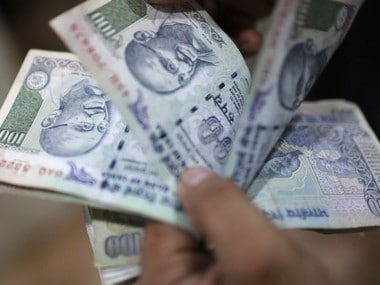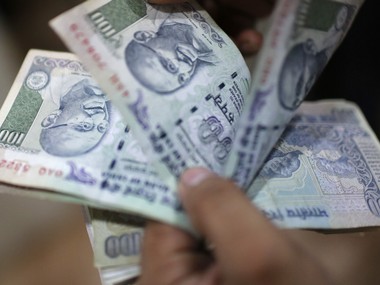In the book The Great Transformations (2001), Austro-Hungarian economic historian Karl Polanyi wrote about the concept of ‘embeddedness’. When marketers of the nineteenth and twentieth century tried to ‘disembed’ the economy from society, what they ended up doing was smashing the element of labour from inside the economy. Critical development scholars, at least in the way they have understood China’s non-intervention approach, have used a range of depoliticised discourses that focus on quantitative growth or technocratic reform, which conceal ideology with an illusion of neutrality. With incremental economic changes at the beginning of a new term and populist reform to retain power, the political pattern woven around economic changes is predictable in India. At the News18 Rising India Summit, Ruchir Sharma, head of the Emerging Markets Equity at Morgan Stanley Investment, said that the importance of politics is exaggerated. “I feel we should not draw results about markets from elections. Polls and by-polls don’t affect markets. It is fascinating to track politics, but economics has its own story,” he said, explaining that the state is broken and the few politicians who wanted to work toward development could not because of this brokenness. In India, one has to be in denial to fail to notice that politics has broadly divided people into two ideological camps that result in extremely opposing reactions to economic decisions. An example of this was seen in the case of demonetisation. All economic decisions, not just the ones that align with a political party’s line of thought, require political will. Sharma talked about the budget of February 2015 as a missed opportunity that the current ruling dispensation could have capitalised on by introducing dramatic changes, for instance, cutting the tax rate down to ASEAN levels or taking a call on the outdated Bank Nationalisation Act. On 19 July 1969, by means of an Ordinance, the Indira Gandhi-led Congress government had nationalised 14 commercial banks of the country. Today, the public sector’s share in the banking industry is two-thirds, which is way above the average of one-third in the emerging markets. However, a change in that equation won’t happen without renewed and bold political will. “A prime minister with such great oratory skills could have marketed this idea to a sceptical Indian audience,” he said that it’s time to tune out of politics because it’s a waste of time from the economy’s point of view, especially because there is much penetration across sectors and growth will happen independently. [caption id=“attachment_4394749” align=“alignleft” width=“380”]  Representational image. Reuters[/caption] It is not just the voters, but also the Opposition that is sceptical of any economic decision, even before it is given a chance to play out. The inseparable convergence of politics and economics can be seen in the case of India’s unemployment crisis. Driving political mileage from promises around the issue of jobs is not a new phenomenon in India. In his 2014 campaign before the Lok Sabha elections, Narendra Modi had promised to create 10 million jobs a year, but the 2016-17 Economic Survey, based on data from the labour ministry, stated that ‘Employment growth has been sluggish’. Today, the world unemployment is at its lowest in 40 years. “There are enough jobs in developed countries, but India has been battling with lack of jobs. The key to success in most developed economies was that they exported their way to prosperity," said Ruchir Sharma, adding that the working-age population is shrinking in 40 countries of the world and that is a major headwind in economic growth. But in the political set up, the two sides look at the same problem differently. At the All India Congress Committee’s three-day plenary session also going on in the capital, the party is set to present a proper roadmap, analysing the job situation under the Modi government and how the Congress plans to tackle it. “Under the leadership of former prime minister Manmohan Singh, the economy of this country flourished. Our government formed policies which lifted millions of people from poverty. And today, the Modi government is weakening these policies,” Sonia Gandhi said at the ongoing 84th plenary session of the Congress. When asked about the accusations of the opposition regarding the missing jobs, Rajyavardhan Singh Rathore, cabinet minister, Ministry of Youth Affairs and Sports, said that this is a stable government that is against red-tapism. “Every three to four months, the Prime Minister takes a report on how the department is working towards ease of doing business,” said Rajyavardhan Rathore. This image of the government’s seriousness towards making India a business hub sends a strong message to the masses in India and economies abroad. Bullets are fired and bullets are dodged even as the youth remains unemployed through the turn of governments. Speaking at the News18 Rising India Summit, Union home minister Rajnath Singh tried to depoliticise concerns around unemployment. He said that the crisis of unemployment is widespread and complex and to expect the government to simply hand everybody a job is irrational. He said, however, that the government’s focus has been to empower the youth with necessary skills and to ensure that those who put in that effort of equipping themselves with those skills, will be helped. To facilitate this, the NDA-led government has launched missions like Start Up India in 2016, in which Department of Industrial Policy and Promotion (DIPP) intends to undertake an exercise to assess States/UTs on key areas of interventions to foster a healthy Start Up ecosystem and the Pradhan Mantri Mudra Yojana, a scheme launched in 2015 for providing loans up to 10 lakh to the non-corporate, non-farm small and micro enterprises. At least on the question of economic issues that have a direct impact on a large population, the focus should shift to positive and collaborative governance.
It is claimed that politics and economics are two different realms. However, as India’s experience shows, the two can never be completely separated.
Advertisement
End of Article


)

)
)
)
)
)
)
)
)



